



10 Productivity Books to Help Your Time Management Skills
This post may contain affiliate links. If you make a purchase through these links, at no additional cost to you, I will earn a small commission.

Do you ever feel like your life resembles a hamster running on a wheel with no end in sight? You’ve tried to-do lists, but the lists just get longer and more unorganized. If so, you’re in the right place. Read on to find out how these books can help improve your work ethic today!
Why read books about productivity?
Our society is obsessed with productivity, but sometimes we just can’t prioritize all the tasks, and in the end, we feel overwhelmed all the time. I’ve been there, especially my first year as a blogger, I couldn’t find a balance between family, my new business, and social life. But there came productivity books, and despite my skepticism, they worked their magic in helping me to improve my prioritization and goal-setting skills. That’s why I’m very excited to share this productivity book list here today. I’m pretty sure these books will inspire and teach you everything from how to set goals that keep your attention on what really matters, why multitasking is bad for us, how to use social media responsibly, which will impact our real lives outside of it… and the list goes on!
Whether you need to establish a routine, find a balance between being busy and being bored, or get a handle on the demands of a new boss, these books will be great tools to help you handle your time management skills.
So stop spinning around and check the best books about productivity!
Cheers to a great start!
Stress Free Productivity

Atomic Habits
by James Clear
We all have some bad habits that we would like to get rid of and the reality is that we cannot get rid of them unless we understand how our brain works in regard to habit formation and how our environment influences us, for better or worse. At its core, Atomic Habits is about changing these environmental factors and understanding why this happens and what role you play in it. We can’t control everything in our lives – but we can control how we show up every day, and how we habitually respond to the little things. Atomic Habits shows you how.
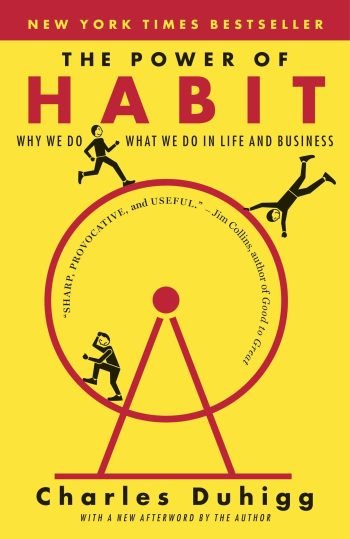
The Power of Habit
by Charles Duhigg
The Power of Habit discusses the science behind habits and how they are formed. The book is based on Duhigg’s personal experiences and observations, as well as interviews with experts in the field of psychology, neuroscience, and business. One of the main takeaways from The Power of Habit is that habits are not destiny and can be changed if you understand how they work. This book also goes into detail about identifying your own habits and replacing them with healthier alternatives.

Getting Things Done
by David Allen
David Allen’s Getting Things Done has become a popular productivity system for a good reason – it works. The basic idea is to get your tasks and thoughts out of your head and into a trusted system so that you can focus on the task at hand. There are many different ways to implement GTD, but the key components are collecting, processing, organizing, doing, and reviewing.
Stop Procrastinating!

Better Than Before
by Gretchen Rubin
Better Than Before by Gretchen Rubin is a very useful book for people who have a hard time sticking to their resolutions. In this book, she explores the need for repetition and how it can help people stay productive. She spends a lot of time analyzing the reasons why people don’t keep their resolutions and what can be done to change that. If you’re going to have a hard time sticking to a resolution then this is a good book for you.
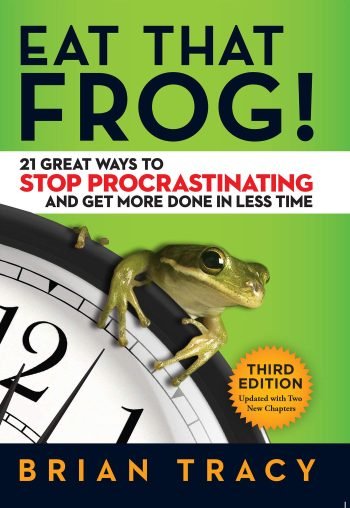
Eat That Frog
by Brian Tracy
If you want to be successful, then you need to start by eating that frog. Brian Tracy’s book is all about getting things done and being productive. It offers several tips and techniques for becoming more effective in everything you do. One of the main points of Eat That Frog is that you should start your day by tackling the most challenging task. This will help you get the ball rolling and make the most of your day. Brian Tracy recommends that you break down this task into smaller goals so that you can make progress and feel good about what you’re doing. Another key point is that you should focus on your strengths and not your weaknesses because this allows you to leverage what you’re good at.
The Benefits of Morning Rituals
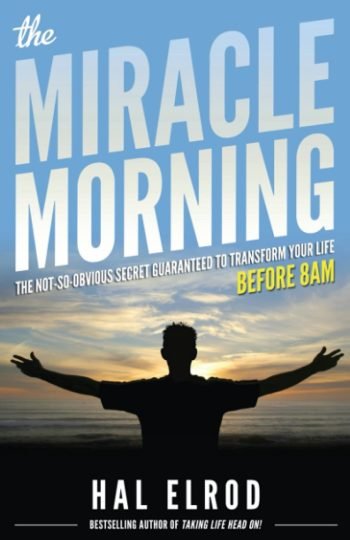
The Miracle Morning
by Hal Elrod
The Miracle Morning by Hal Elrod details a simple yet powerful routine that can be done each morning to jumpstart your day and help you become more productive. The routine consists of six steps: Silence, Visualization, Affirmation, Exercise, Reading, and Planning. The key to The Miracle Morning is that there are only six steps so that you can fit them into your daily schedule without much effort.
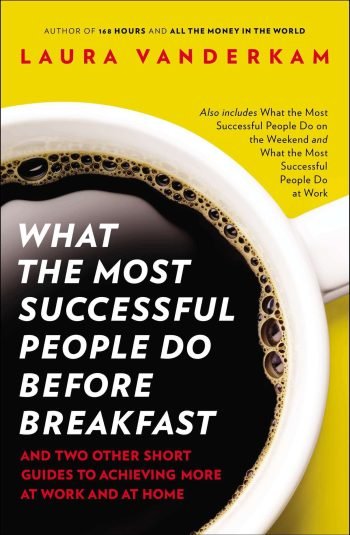
What the Most Successful People Do Before Breakfast
by Laura Vanderkam
Do you want to start your day like a successful person? If so, Laura Vanderkam has some tips for you. One of the most common practices is planning out your mornings right before you go to bed at night. This way, when you wake up in the morning, you’ll already have a schedule for how you plan to use your time. Another aspect of successful people’s morning rituals is getting up early and using that time for yourself; don’t check email first thing in the morning or try to knock out other tasks or chores just yet. That way, you can start off with something that will help you focus on what matters most.
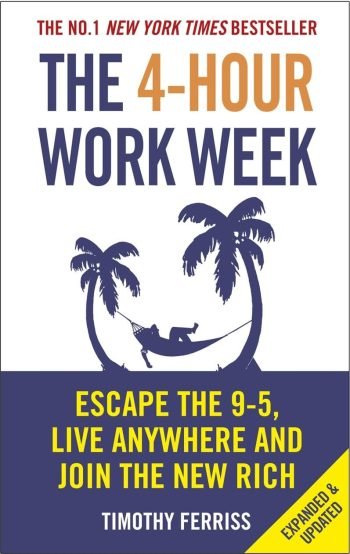
The 4-Hour Work Week
by Timothy Ferris
The premise of the book is that you don’t need to work 40 hours a week in order to lead a successful life. In fact, you can work far less and still achieve your goals.This may seem like an impossible dream, but Timothy Ferris offers plenty of evidence to back up his claims. He cites examples of people who have successfully managed to reduce their workloads without sacrificing their lifestyles or their income. If you’re looking for ways to simplify your life and free up some extra time, The 4-Hour Work Week is definitely worth reading.
Save for Later

How Mastering Difficult Tasks

Make Time: How To Focus on What Matters Every Day
by Jake Knapp & John Zeratsky
In their book, Jake Knapp and John Zeratsky explain how to focus on what matters every day. That starts by breaking down the myth that multitasking is an effective way to manage time, then outlines some principles for doing single-minded work. Make Time also provides three strategies for tackling big projects along with 10 tactics that will help you finish any task on time. The goal of this book is not to help you become more efficient so you can do more in less tim, but rather to help you spend your time doing what matters most.
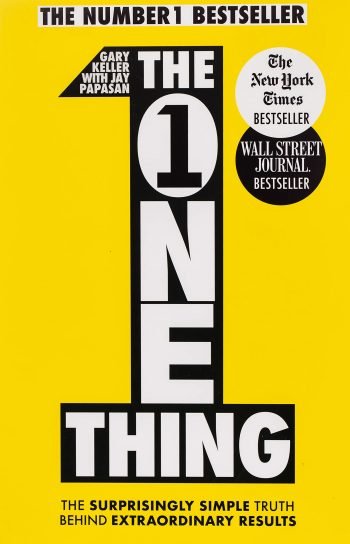
The One Thing
by Gary Keller with Jay Papasan
The One Thing discusses the importance of focusing on one thing in order to achieve success. The book shows the importance of setting goals, breaking them down into manageable tasks, and then focusing on only one task at a time in order to achieve those goals. The book also emphasizes the importance of having a clear purpose in life and of living each day with intent. The One Thing suggests to stop thinking about multitasking which claims to increase productivity but actually decreases it rapidly, and instead focus on only one priority; put every single thing you have into that one task until it is completed, then move on to the next. This will prevent distractions from derailing your progress and increase the speed of your work.
Save for Later
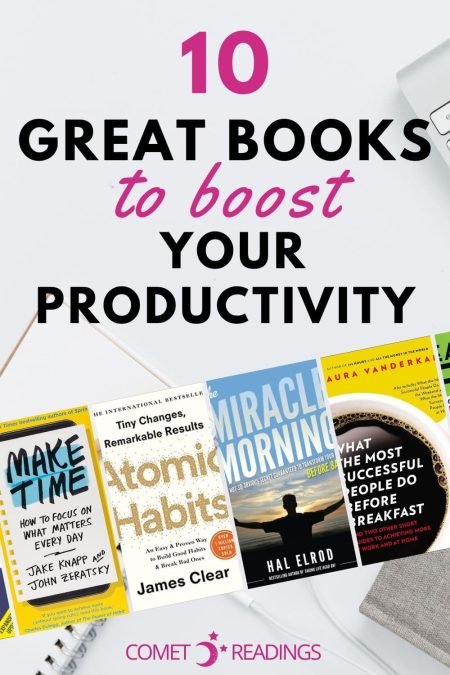
RECOMMENDED POSTS
Be a passionate reader
and say Yes to passionate recommendations!
Welcome to the Comet Readings Newsletter!
Thank you for subscribing to the newsletter! I'm excited to have you as a part of our community and look forward to keeping you updated on all things books, authors, and more.
Happy Reading,
Elisabeth

